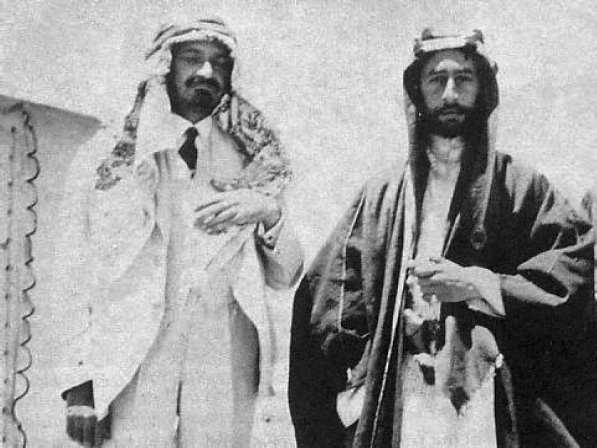
January 3, 1919
On January 3, 1919, Emir Faisal, son of Sharif Husayn of Mecca, and Chaim Weizmann, Zionist diplomat and leader, signed the Faisal-Weizmann agreement, an agreement of mutualrespect and cooperation between Arabs and Jews in the Middle East.
The two first met in Aqaba in the spring of 1918 at the suggestion of the British. The meeting took place amidst growing discontent among both Zionists and Arab nationalists about the future of Palestine following World War I and the national aspirations of both sides.
Following a second meeting in London in December 1918, the two made an agreement that proclaimed they were mindful of the racial kinship and ancient bonds existing between the Arabs and the Jewish people, and realizing that the surest means of working out the consummation of their national aspirations, is through the closest possible collaboration in the development of the Arab State and Palestine.
In the agreement, Faisal recognized the contents of the Balfour Declaration, agreeing to a Jewish presence in the Holy Land as long as Arab independence would be granted in the formerly Ottoman-controlled Middle East. However, the Faisal-Weizmann agreement never came to fruition because the League of Nations created mandates in the Middle East based on the British and French Sykes-Picot Agreement.
Furthermore, Faisal’s right to represent the Arab people was called into question and later repudiated at an Arab Congress in Damascus.
The full text of the agreement can be found here: http://tinyurl.com/px738kj
The photo shows Chaim Weizmann (left) and Emir Feisal in Aqaba in April 1918.
